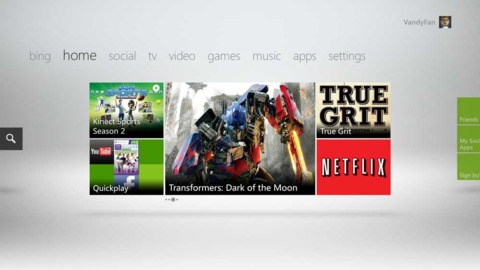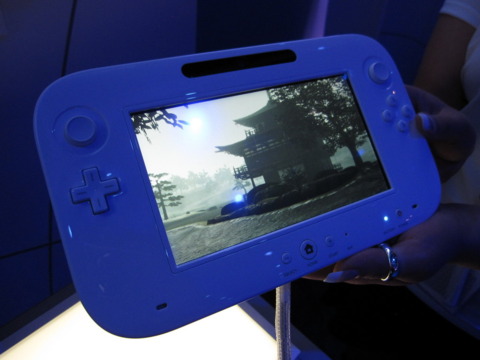PlayStation, Xbox, Wii U - Which Will Survive?
There's a growing sentiment that Microsoft, Nintendo, or Sony may not stay in the console business much longer. Which company will be the next to go?
During a panel discussion at the Consumer Electronics Show in Las Vegas titled "Consoles Are in Trouble," Gaikai chief product officer Nanea Reeves predicted the end of the current console triumvirate, stating "not all of the current console makers will have one more generation. That will be the big news at E3." Obviously, a cloud gaming service has a vested interest in making such a prediction, but this also came on the back of news that Gaikai's chief cloud-gaming competitor OnLive had struck a deal to be included in Android-powered Google TV products and that none of the major players had chosen to use the biggest technology event in the world to tout any kind of new gaming technology. Meanwhile, during other panel sessions at the same Games Summit conference at CES, executives from a variety of connected industries, including media, development, manufacturing, investment, publishing, and research, all speculated on a future in which current conventions were no longer relevant.
So, if Reeves is right and one of the big three is going to drop out, who might that be, and why? Let's get this conversation started right here. Consider the following and let us know your thoughts in the comments.
Microsoft
Why Microsoft Won't Drop Out
The Xbox 360 is a shining beacon of success within the Microsoft organization right now. After a rocky start in 2001 with the original Xbox and its astronomical costs, the company has really figured out how to take ownership of its ecosystem and make some serious money out of gaming. Microsoft employees that we've spoken to during the past few months have intimated that senior management is much more focused on the Xbox group than ever before and that it's held up as an example to other business units as the guiding light when it comes to combining hardware, infrastructure, and software that customers will (currently) pay for at every level. Think about it; they sell you the box for $299, they sell you the service for $60 a year, they sell you the games for $60 a pop, and they get a cut of every game sold on the platform. As models go, it's pretty sweet for them, and for as long as it's working, they're unlikely to let it go. Xbox Live specifically is arguably the company's greatest success; it's an effective moneymaker already, but more importantly, it's probably the best example of how a games service should work, with the exception of Steam.
While Microsoft has larger and more powerful business units, it doesn't exert as much control over anything else; it doesn't make branded PCs, it doesn't make phone handsets (yet), and it can't justifiably layer an additional Live-style service charge on top of what you're already paying your mobile carrier.
Why Microsoft Would Drop Out
Making hardware is a messy and expensive business, and Microsoft is already in partnership with plenty of vendors that could make gaming boxes for them. If the company were to consider dropping out of anything, it would be the hardware manufacturing piece specifically. It has built its entire empire on creating platforms that require compliance, and making the next-generation Xbox a standard rather than an actual box would both play to its strengths (Xbox = Windows, kinda) and reflect the direction in which many other facets of the consumer electronics business are moving.
During the Games Summit at CES, it was speculated that "Xbox Live" could become a label that we see on PCs, laptops, set-top boxes, smart TVs, and portable electronics, indicating that the device is capable of downloading Xbox-compliant games and that it supports Xbox-compliant peripherals.
Sony
Why Sony Won't Drop Out
Sony is fundamentally a hardware company. It may own some incredible development talent in the games space, but the organization was built on hardware and on developing new technologies that it hopes other companies will pay it for and license. While its competitors are looking at more open and collaborative solutions, Sony is adhering to the idea that proprietary formats are still the answer; Blu-ray is just one example, while the ridiculously priced memory sticks are another. What was previously perceived of as an unrelenting push for progress now looks a bit bonkers. At CES this year, it continued to show a complete disregard for consumer behavior with its proposal for a move to the 4K super-HD video format.
"What was previously perceived of as an unrelenting push for progress now looks a bit bonkers."The original PlayStation was probably the most powerful wind of change to ever blow through the halls of Sony. It affected the culture and the direction of the company as much as, if not more than, the Walkman. When Sony stepped into the games space in 1994, it disrupted both the industry and the expectations of gamers so fiercely that it was able to redefine the whole model. With the PlayStation 2, Sony did it again, and by also making it a great DVD player, it was able to accelerate the adoption of more than one content-delivery platform at once--both of which it conveniently dominated on the content front, too. This is the legacy that Sony is holding onto, and it's this, plus the need to have a showcase hardware platform for its other next-generation hardware technologies, that makes a solid argument for the PlayStation 4.
Why Sony Would Drop Out
The PlayStation 3 was far too much of a stretch; not in terms of putting a great product in front of gamers, but in terms of pushing its luck with the integration of proprietary hardware standards. Both the original PlayStation and the PlayStation 2 had been successful as a delivery mechanism for Sony technology that the company exhibited an unbelievable amount of arrogance regarding its ability to repeat that performance. It backfired, and the company lost a lot of the goodwill and loyalty it had built. While the PlayStation 3 is doing incredibly well now, the slow burn that the platform has been afforded is unlikely to be repeated. Ever. Given the pace at which technology is moving and the competitive landscape that's quickly emerging, tolerance for tech that takes three years to really get going is less and less likely. Gaming technology, and the PS3 in particular, is now within the realm of being "good enough" (to use a term often bandied about by tech companies) for the majority of consumers. As a mass-market user, it's getting harder to justify why you need an even more powerful box when the one you have is already kind of awesome.
Nintendo
Why Nintendo Won't Drop Out
Nintendo is still the purist of the space. Though the company has dabbled in offering other services on its devices throughout the years, its fundamental purpose has always been about delivering games. Often its own games. Whereas Microsoft and Sony have leaned hard into the "digital entertainment" space, Nintendo has steadfastly adhered to the idea of being a games console. Its devices are designed with specific kinds of experiences in mind, and this is why it has enjoyed such considerable success. By keeping out of the "horsepower" war since 2006, Nintendo has chosen to be disruptive in other areas by focusing on interaction and interface rather than processing power or capacity. The fundamental architecture of the Wii can trace its roots back to the previous generation of consoles launched in 2001, prompting criticism that it was little more than "two GameCubes taped together," but that certainly hasn't hurt its sales performance.
Want to know the biggest argument for why Nintendo won't drop out of the next generation though? Duh…They already announced it. It may not meet the expectations of what some consider worthy of the term "next generation," but the Wii U, which we understand will sit on store shelves alongside the original Wii for at least a year or more, is clearly a big step up from its predecessor.
Why Nintendo Would Drop Out
People buy Nintendo consoles to play Nintendo games. Sure, there have been lots of attempts to lure third-party publishers to the platform, but fundamentally, we buy Nintendo boxes for Super Mario Something-Something, The Legend of Zelda Something-Something, Smash Bros., Mario Kart, Kirby, Donkey Kong, and whatever other imaginative mash-ups of intellectual property the company has conceived. The software sells the hardware, and in a world where research and development, manufacturing, and distribution are more expensive than ever, there's an argument for a uniquely positioned company like Nintendo to get out of the hardware game. By recasting itself as a "Disney" of gaming, it could rebuild itself as a masterful IP management company and focus on pushing its iconic characters to whatever platform gives it the largest audience.
Though Nintendo has continued to assert that it needs third-party support, it is increasingly unlikely to get it if its offering is going to be as different from its competitors as it appears. Developers for the next generation of games will not be able to support two different build targets for their games because both the financial and time cost will be so high. These studios need to be able to build the core tech and generate art assets once, and then deliver them across the console platforms and PC. If a platform (like the Wii U) can't share in that, it's unlikely to get any support.
Got a news tip or want to contact us directly? Email news@gamespot.com


Join the conversation